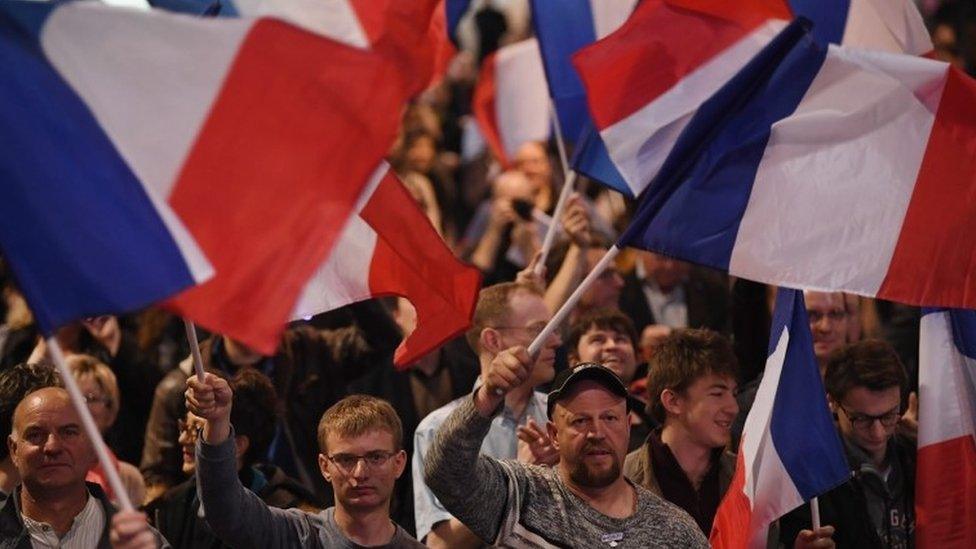French election: How do Le Pen and Macron differ on world affairs?
- Published
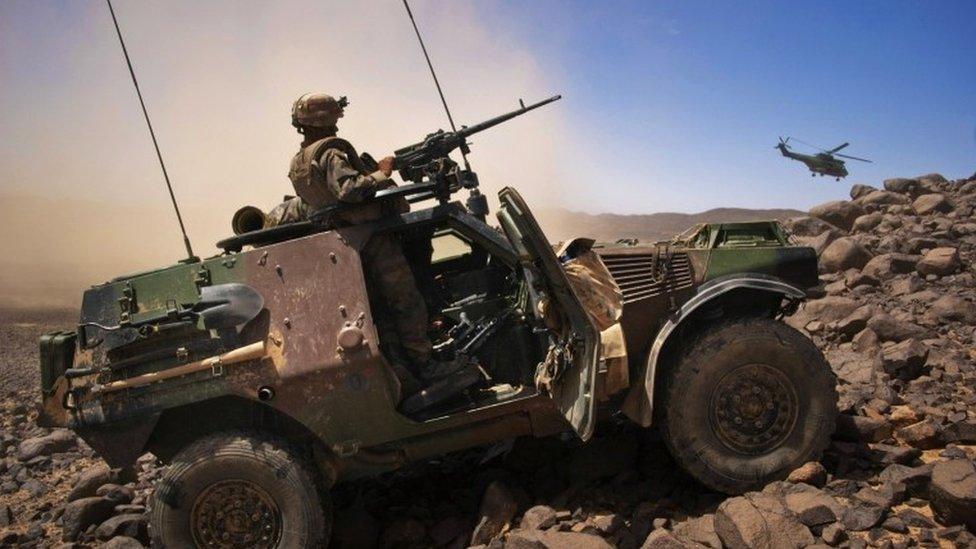
French troops in Mali: African aid and defence are key areas
This is a presidential contest of opposites.
There are few similarities between the outlook of Emmanuel Macron, a centrist, and Marine Le Pen of the far right.
Their differences over foreign and defence policy are stark, underscoring that this is not so much a traditional political battle, as a struggle over a new cleavage: between nationalism and internationalism.
Marine Le Pen, by definition, is a nationalist. This is the prism through which she sees all political choices.
She wants to make France stronger by reinforcing its sovereignty and reducing the scope of its entanglements with other countries and institutions. Her National Front (FN) party's slogan "Les Français d'abord" (loosely translated as "the French First") is as appropriate a summary of its approach to foreign affairs as it is for its domestic outlook. Ms Le Pen - like the FN itself - sets herself up as the champion of "eternal France" against the forces of globalisation.
Emmanuel Macron by contrast, at least in foreign policy terms, is a man of the status quo and of continuity, an ardent advocate of the EU and of internationalism.

Here are their fundamental differences on key issues:
Russia
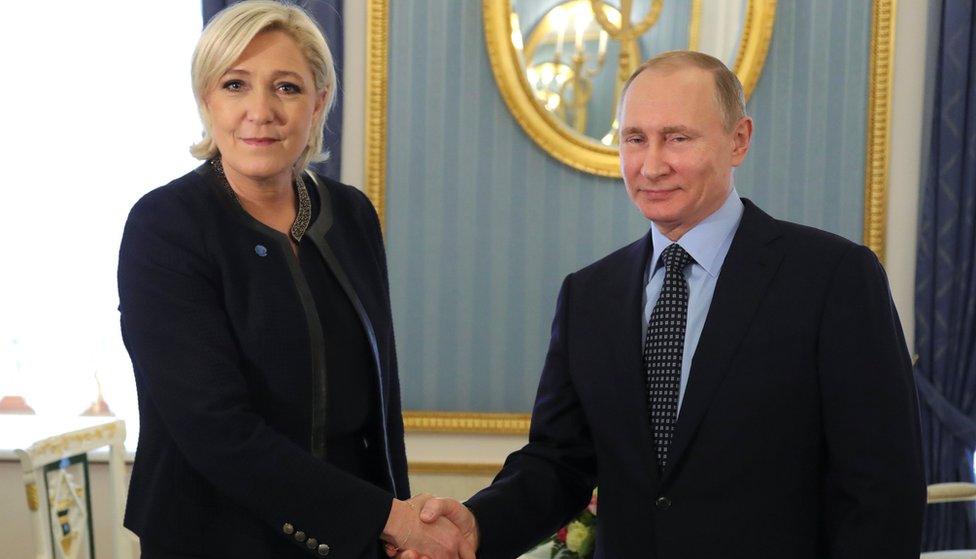
Marine Le Pen's National Front has received large loans from Russian-linked banks
MACRON. Opposes any rapprochement with Russia and backs sanctions against Moscow as long as the Minsk accords (to resolve the Ukraine crisis) are not honoured. Has described Russian foreign policy as "dangerous" and one that "doesn't hesitate to break international law". Cyber attacks on computers used by Mr Macron's En Marche movement have been linked by some to Russian-based hackers.
LE PEN. Met Vladimir Putin in Moscow recently and sees nothing illegal in Russia's 2014 annexation of Crimea. Wants to develop a strategic partnership with Moscow to fight so-called Islamic State. French media have revealed that the FN has received significant loans from Russian banks or banks associated with Russian financiers. Marine Le Pen denies the money has any bearing on FN positions towards Russia. As French banks would not lend the FN money, she was obliged to seek funding abroad, she said.
Syria
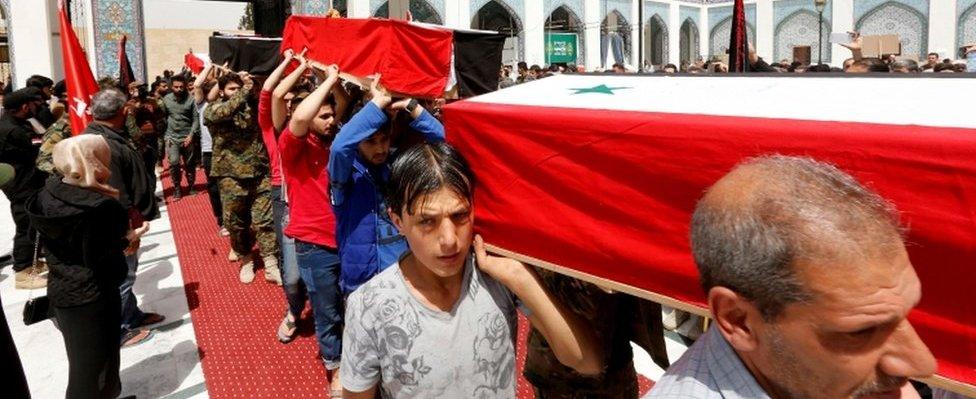
How will French policy play out on Syria?
MACRON: President Bashar al-Assad should answer for his crimes before an international tribunal.
LE PEN: In the wake of the chemical attack in Syria in April, a National Front spokesman said that it was not clear who had carried out the attack and that President Assad, despite everything, remained the only defence against jihadist group Islamic State.
European Union
MACRON: An advocate of developing the EU further - giving the eurozone a budget and its own finance minister. He wants to mount a campaign to counter anti-EU sentiments and launch a rejuvenated European project.
Emmanuel Macron pledges EU reform if elected
LE PEN: Has campaigned for France to leave the euro and has proposed a referendum in which French voters will have an opportunity to vote to leave the EU. Describing the euro as "dead", she wants France to go back to the franc with the single currency becoming a common currency for trade. However, she has said negotiations with the EU could take some time.
Aid to Africa
MACRON: Eager to increase France's foreign aid budget; will review France's military bases in Africa; eager to help African nations stand more on their own two feet in defence terms.
LE PEN: She, too, is eager to increase France's foreign aid budget but this is largely seen through the prism of security - a desire to stem the tide of immigration and terrorism, two things the FN tends to link together.
Nato and defence
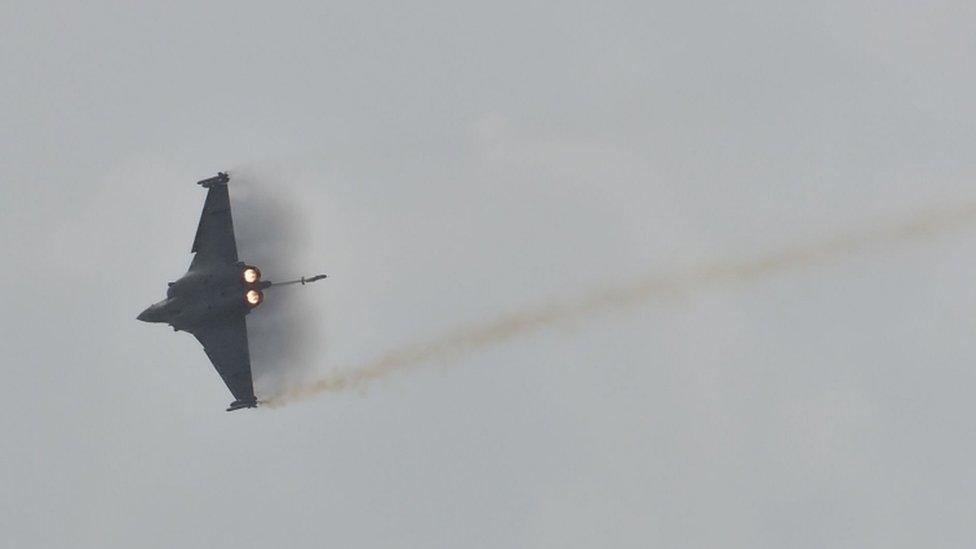
A French Rafale jet. Both candidates want to boost defence spending
MACRON: He would raise defence spending to the Nato benchmark of 2% of GDP by 2025. Nato remains the bedrock of French defence but he is eager to see a much more significant European defence dimension, not least due to some of the uncertainties surrounding the Atlantic Alliance prompted by President Donald Trump's comments.
LE PEN: She has described Nato as an organisation whose reason for being - the Soviet threat - no longer exists. She would withdraw France from Nato's integrated military command. She says that she would increase French defence spending to 2% of GDP by 2018 and to 3% by the end of her five-year term.

The foreign policy debate serves a wider purpose of acting as a kind of litmus test for the transformation of Marine Le Pen and the FN.
She has invested a huge amount of time and effort to try to "de-toxify" the FN; to soften its image and to distance the party from its far-right roots. She has had some success, broadening the party's appeal and drawing upon a wider current of populist revolt against economic inequality and the status quo. Nonetheless, on occasions during the presidential campaign, the mask has slipped.
Indeed it is in the area of foreign policy where Marine Le Pen's approach is closest to that of her father, FN founder Jean-Marie Le Pen. He was hostile to the EU, Nato and the US; a firm supporter of the Assad regime and, indeed, that of Saddam Hussein in Iraq as well.
Foreign policy, of course, has never been the determining factor in any French presidential election but the conduct of foreign policy remains very much the president's reserved domain. He or she will have the dominant role in setting out France's approach to the world in the years ahead.
- Published2 May 2017
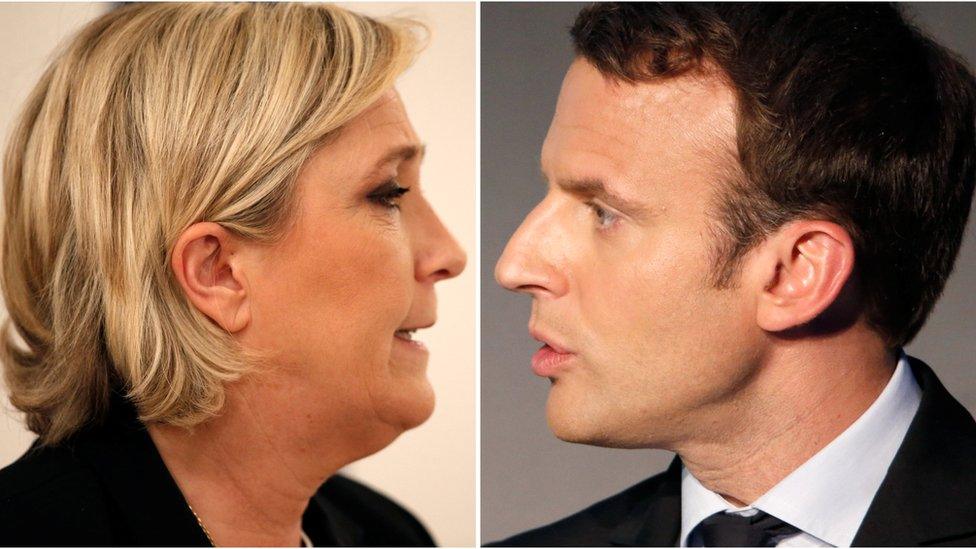
- Published24 April 2017
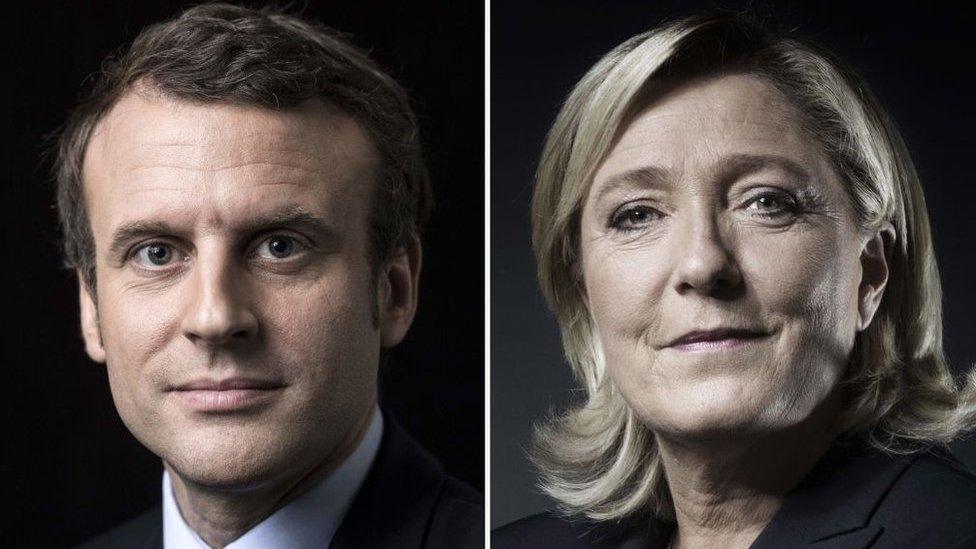
- Published3 May 2017
